Haley says US will find other ways to take action against Iran after softened Security Council measure vetoed by Moscow
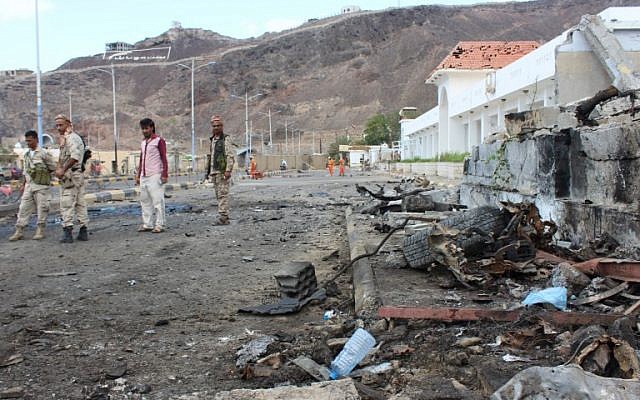
UNITED NATIONS — Russia vetoed a British-drafted UN resolution on Monday that promised action against violations of a UN arms embargo on Yemen and pointed to a report by experts that cited Iran as a violator.
The vote was 11 in favor, Russia and Bolivia opposed, and China and Kazakhstan abstaining.
A report in January by the UN panel of experts said Iran violated the 2015 arms embargo by failing “to take the necessary measures” to prevent the direct or indirect supply of missiles and drones to Shiite Houthi rebels in Yemen.
The experts examined missile remnants fired into Saudi Arabia by the Houthis last year and said many “are consistent with those of the Iranian designed and manufactured Qiam-1 missile.”
Britain initially included a condemnation of Iran in its draft resolution to extend sanctions and the mandate for the panel of experts to continue their work — but dropped it because of Russian opposition.
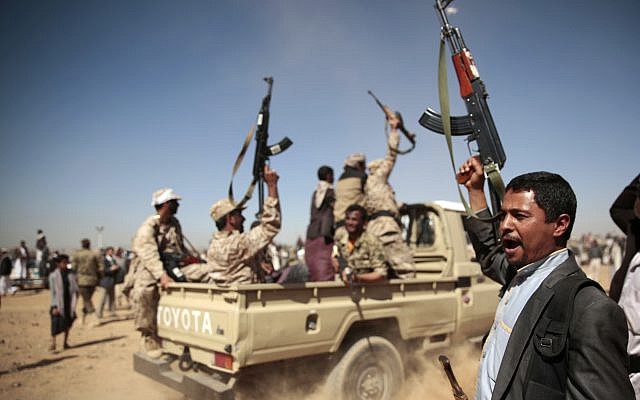
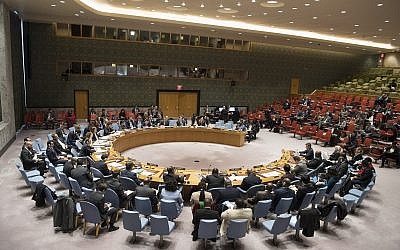
But the British draft still expressed “particular concern” at the experts’ report that “weapons of Iranian origin were introduced into Yemen after the imposition of the targeted arms embargo, and that the Islamic Republic of Iran is in non-compliance” with the 2015 arms embargo. The draft pledged action against violators.
Before the vote, Britain’s deputy UN ambassador Jonathan Allen said the British draft reflected the panel’s “very serious concerns” and “makes clear Iranian non-compliance.”
He urged council member not to “shy away from calling out those who violate” sanctions.
But Russia’s UN Ambassador Vassily Nebenzia said Moscow objected to the panel’s “selective and contentious conclusions” which have not been verified or corroborated.
He called the British draft “dangerous” and warned that it would “escalate regional tensions.”
Immediately after the British draft was vetoed, a rival Russian draft that made no mention of Iran or the panel of experts’ report but simply extended sanctions against Yemen until February 26, 2019 and the mandate of the panel of experts until March 28, 2019 was put to a vote.
It was adopted unanimously.
Haley: We’ll find other ways to punish Iran
Iran has repeatedly denied arming the Houthis in Yemen, despite claims by the United States and Saudi Arabia that the evidence of an arms connection is irrefutable.
US Ambassador Nikki Haley released a statement accusing Russia of shielding Iran and warned the United States would consider other ways to take action against Tehran.
“Today, Russia protected the terrorist-sponsoring regime in Iran,” said Haley, who was traveling to Honduras.
“If Russia is going to use its veto to block action against Iran’s dangerous and destabilizing conduct, then the United States and our partners will need to take actions against Iran that the Russians cannot block.”
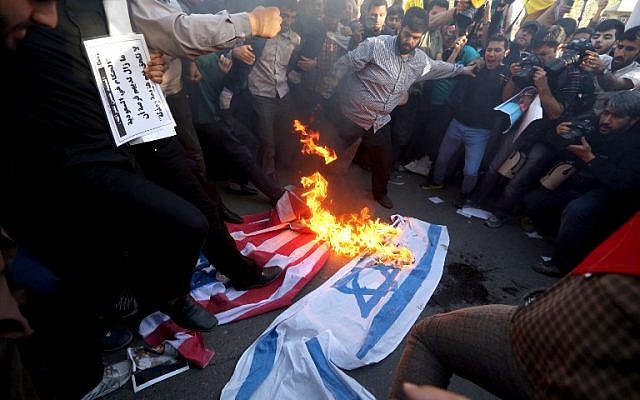
Haley has taken a hawkish stance on Iran, accusing Tehran of sowing instability in the Middle East and failing to live up to its commitments under the landmark 2015 nuclear deal.
Russia, which has traditionally friendly relations with Iran, is providing military support along with Tehran to Syrian President Bashar al-Assad’s forces.
Iran’s mission to the United Nations charged that the United States and Britain had pushed an “unwarranted draft resolution” to advance an anti-Iran political agenda.
Iran “categorically rejects allegations regarding arms transfer to Yemen,” said a statement from the mission that described the draft resolution as an attempt to “distract” the world’s attention from the “catastrophic humanitarian situation” in Yemen.
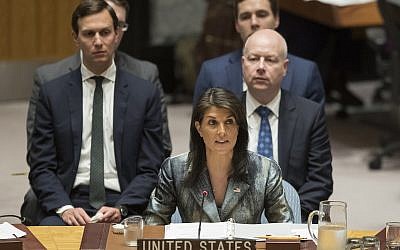
A Saudi-led coalition supporting Yemen’s government has been fighting the Huthis since 2015 in a war that has led to what the United Nations describes as the world’s worst humanitarian crisis.
An alarming 17 million people in Yemen — 60 percent of the total population — are in need of food aid, of whom seven million are on the brink of famine because of the conflict, according to the United Nations.
As reported by The Times of Israel
